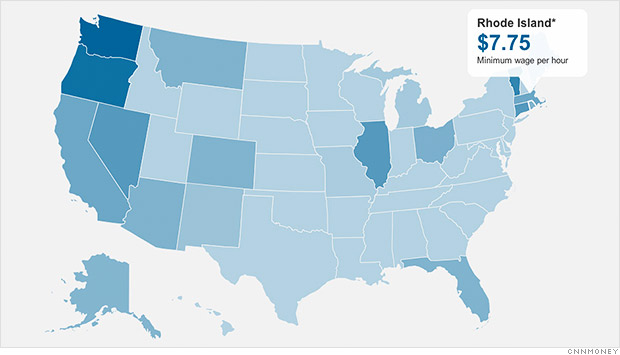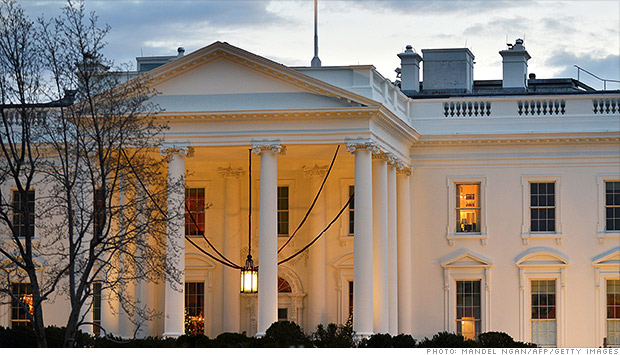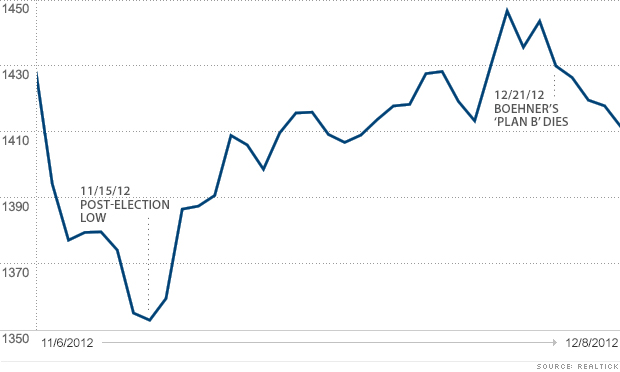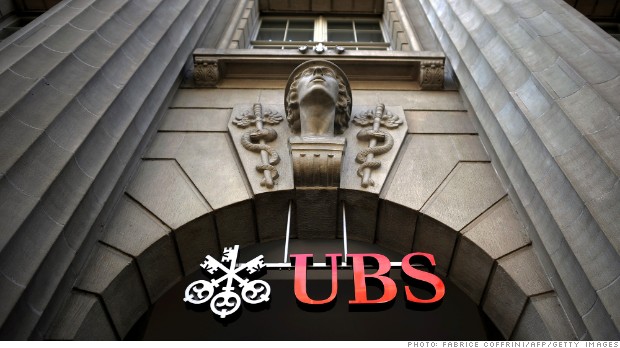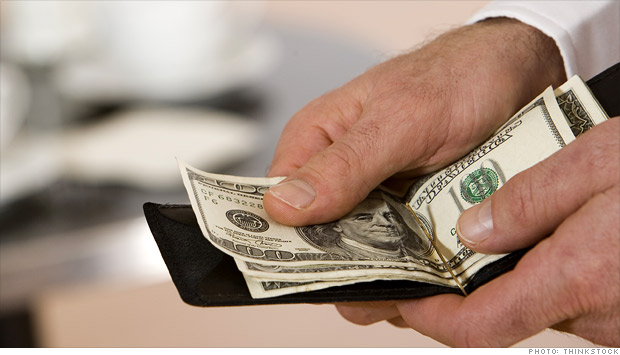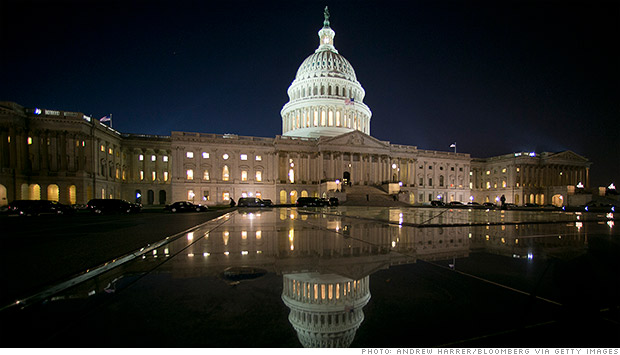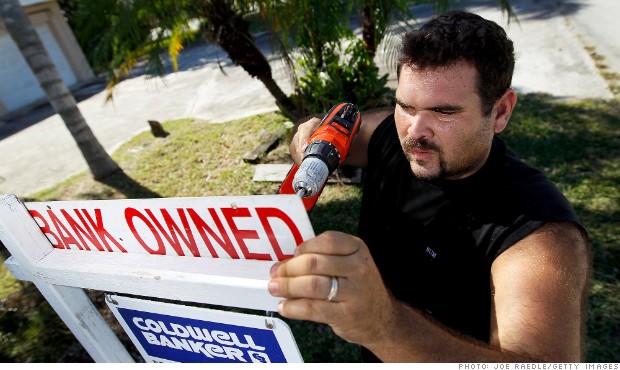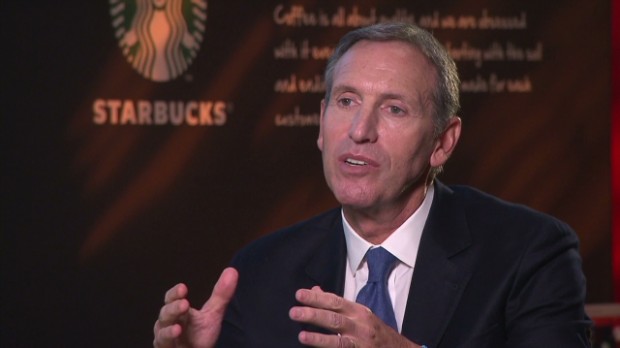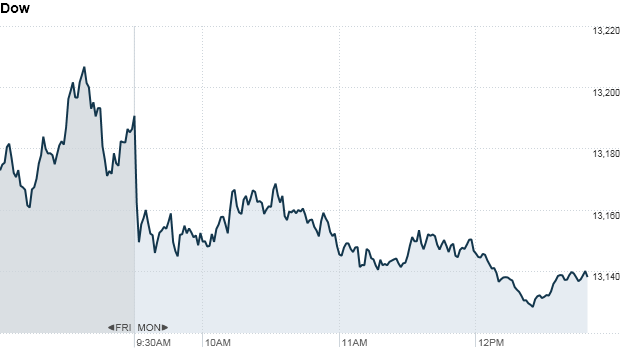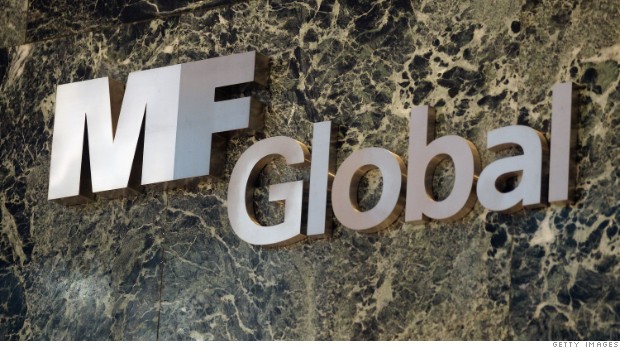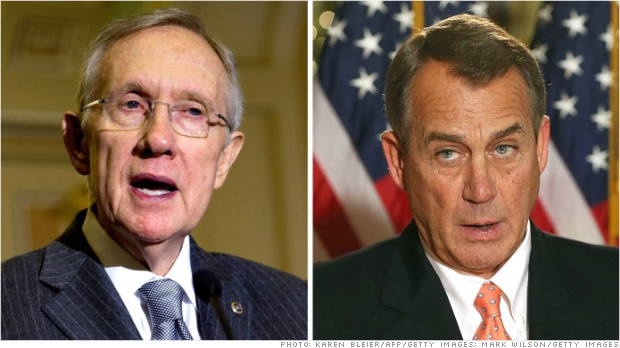
Senate Majority Leader Harry Reid may need to do some heavy lifting to pass a fiscal cliff deal in the Senate, after House Speaker John Boehner's so-called Plan B did not garner enough support in the House.
NEW YORK (CNNMoney)
The good news: It won't be the end of the world.
The bad news: Going over the cliff could create problems that no one should have to deal with, simply because Congress and the White House couldn't get the job done on time.
Practically speaking, however, there is likely to be a "grace period" of a couple of weeks during which Congress could pass a deal to ward off the bulk of scheduled tax increases and spending cuts. And there are ways both may be postponed temporarily while lawmakers work that out.
Your paycheck: If you'll be paid during the first week in January, your company's payroll processor will probably be cutting your check during Christmas week. So far, however, the IRS hasn't told the payroll companies how much tax to withhold for 2013.
Unless new withholding tables are issued, payroll processors will continue to use 2012 withholding rates for the early January paychecks. In that sense, your paycheck in early January won't be much different than what it was in late December.
But your paycheck still could be smaller, because the 2% payroll tax holiday is expiring. Starting in January, workers will once again have 6.2% of their wages up to $113,700 withheld to pay for Social Security, up from the 4.2% rate that's been in effect for the past two years.
Effectively that means someone making $50,000 might get about $83 less a month in their paychecks. Someone making twice that would see their pay reduced by roughly $167 a month.
If you're getting a bonus, you'll likely have more withheld there, too, said Michael O'Toole, senior director of government relations for the American Payroll Association. That's because there's one supplemental withholding rate that applies to bonuses. This year it's 25%, but it's set to rise to 28% on Jan. 1, unless Congress decides to change it.
For paychecks that will be cut during the second, third and fourth weeks of January, payroll processors will likely continue to use 2012 income tax withholding tables if they've heard nothing from Treasury and the IRS by that point, O'Toole said.
CNN: Breakdown of support for Plan B
There also is some debate whether Treasury Secretary Tim Geithner will have the authority to tell employers that they should continue to use the 2012 withholding tables until further notice if he chooses.
The other option, of course, is that the IRS could issue new withholding tables reflecting 2013 law, which means everyone's tax rates will go up officially on Jan. 1. In that case, paychecks that are processed in January will have more withheld than they do currently.
If, as expected, Congress eventually chooses to extend the Bush tax cuts for all but the highest earners, adjustments would need to be made for paychecks that went out earlier in the year.
Treasury did not indicate to CNNMoney whether it would issue new withholding tables by Jan. 1.
Your 401(k) and IRA: There's no telling how markets will respond if fiscal cliff gridlock persists into 2013.
They've been relatively sanguine so far. But that may not be the case going forward.
After news that House Speaker John Boehner tabled Plan B because it lacked sufficient support, U.S. stocks fell Friday by just under 1%. World markets also ended the day modestly in the red.
Then again, some believe, markets may not move much on fiscal cliff news - whether Congress cuts a deal soon or not.
Your 2012 tax return: Here's where things potentially become a dumb mess. The IRS warned lawmakers that if they don't act to protect the middle class from having to pay the Alternative Minimum Tax for tax year 2012 by Dec. 31, up to 100 million taxpayers may not be able to file their 2012 taxes until late March.
That would mean their refunds will be delayed. And they wouldn't be injecting those refunds into the economy during the first quarter.
Based on Treasury Department records from the past three years, refunds paid during January, February and March combined have ranged from $117 billion to $136 billion.
Related: What's in the fiscal cliff?
Government spending: Unless lawmakers avert the so-called sequester, a series of automatic cuts will reduce the budgets of most federal agencies and programs by 8% to 10%.
But that doesn't necessarily mean those cuts would have to occur immediately, according to a former official with the Office of Management and Budget.
Both the White House budget office and federal agencies themselves will have some latitude to postpone the cuts from occurring "for several weeks if necessary," added OMB Watch, a group that monitors the federal budget.
The White House Budget Office did not respond to questions from CNNMoney.
Doctors' pay: Absent a fiscal cliff deal that includes a so-called "doc fix," Medicare physicians are facing a nearly 27% cut in their payments for treating Medicare patients.
But here again there may be a few weeks' grace period for Congress to change its mind and reverse the cut. That's because a claim submitted will be paid no less than two weeks after it's received.
Unemployment benefits: A federal extension of unemployment benefits is set to expire. If Congress does not renew it, workers who lost their jobs after July 1, 2012, will only receive up to 26 weeks in state unemployment benefits, down from as many as 73 weeks in state and federal benefits that have been available in 2012. As a result, more than 2 million of the long-term unemployed will run out of benefits in January, according to the National Employment Law Project, an advocacy group.
If Congress chooses early next year to keep the extension in place, and makes the extension retroactive, then many of the 2 million who fell off the rolls may be paid retroactively, said Rick McHugh, a NELP staff attorney. 
First Published: December 21, 2012: 4:39 PM ET

![]()

